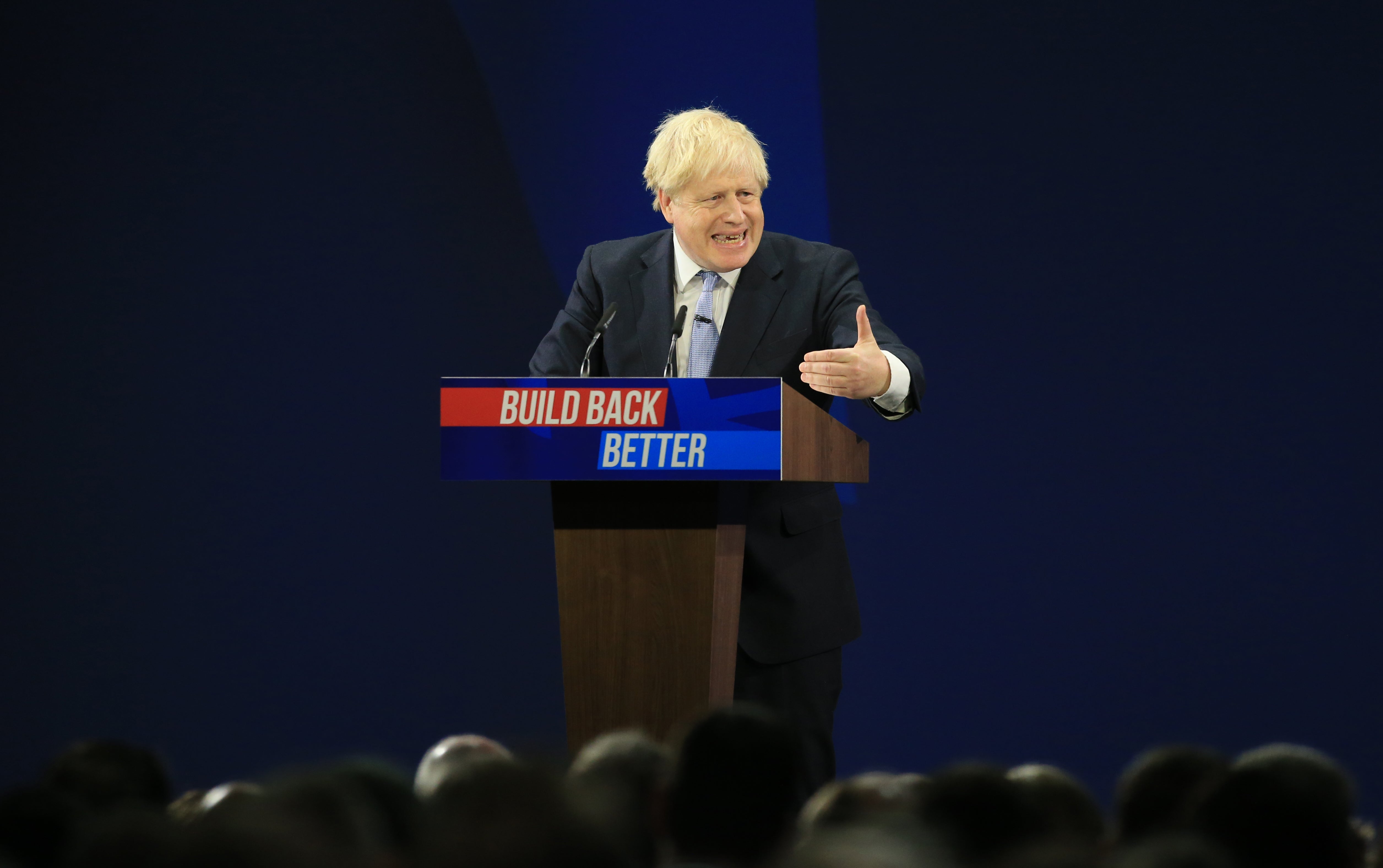Brexit’s no quick fix for higher wages and better skills
The UK’s wage and productivity challenges cannot be fixed just by cutting immigration, writes Anna Isaac


The UK will have a “high wage, high skill, high productivity” economy after a period of adjustment following Brexit, the prime minister has claimed. The reason for this transformation, he said, is a refusal to pull a lever marked “uncontrolled immigration”.
However, some economists are skeptical of Johnson’s sudden shift to suggesting that Brexit will be a boon for the economy.
Average wages in the UK are neither excellent nor terrible, ranking middle of the pack among OECD countries explains, Xiaowei Xu, senior research economist at the Institute for Fiscal studies, a think tank. But that doesn’t tell the whole story: British wage inequality is high, and it has a relatively high share of low-paid workers, compared to many other large economies.
Immigration in and of itself does not usually push average wages up or down. This is because when a person moves to a country, they tend to bring both supply – their labour – and demand – their buying power with them.
There are some distributional effects, however. That means the impact of immigration might not be the same for all tranches of earners.
“It does seem to reduce the wages of low-wage workers and increase the wages of high-wage workers,” says Xu. A range of studies which suggest that immigrants often help to boost the highest paid, most productive workers.
So, while in some sectors there’s a downward impact on the lower end of the wage scale from having a relatively open labour market at times, there is also a boost for the top end, too. Immigrants also tend to be net contributors to public services such as the NHS, meaning they put more into the state in taxes than they take out.
They make a much broader contribution to the economy too – they simply make it larger by increasing supply and demand, and in many instances by boosting the wages of higher earners, often by performing service roles such as childcare that can ease their ability to work more effectively, increasing their productivity.
“It’s also not necessarily low skilled. It can be about soft skills, knowing how to engage with someone in emotional distress, being a good communicator,” says John Springford, deputy director of the Centre for European Reform, a think tank. “Having a lot of low skilled migrants coming into a sector like social might depress wages slightly but it might also dramatically improve older people’s experience of care.”
Cutting out all low-skilled immigration is not a slam dunk for boosting lower wages, either.
“Some sectors wouldn’t be sustainable without immigrant workers to sustain them,” explains Xu. “Do businesses adapt in a way that boosts productivity? Or are they in agriculture, perhaps areas like fruit picking that is really hard to automate?” If immigration continues to be constrained for low-skilled workers, farmers will simply go out of business, says Xu.
That is the kind of example which thrusts a problem for Johnson into the spotlight: if this does prove to be a dramatic readjustment for the UK economy, an “adjustment” of the scale seen during 1970s deindustrialisation, it is likely to prove very painful indeed.
The discomfort is already starting to show, with high rates of job vacancies failing to pull workers off furlough, or in-work benefits such as universal credit.
British firms face stressed or fractured supply chains both because of decoupling from the EU’s single market in goods, services and labour, but also huge pandemic-triggered disruption to trade. These global issues run the gambit from shipping containers in the wrong places, to electronic chips shortages, and huge demand for some raw materials. There is also an energy price crisis afflicting the UK and EU, all while China struggles to keep the lights on.
The result of these challenges is inflation. But that climbing rate of price rises comes amid a weakened economic recovery. This raises concerns about stagflation and the prospect of the Bank of England being forced to raise interest rates just when it could dampen the economy further, in a bid to stop runaway inflation.
Domestic and international investors are not sending signals that they buy Johnson’s logic that the UK is on the brink of a bold, prosperous dawn. Productivity gains, greater output per worker per hour worked, are an economic sweet spot which does not cause inflation.
The prices of UK bonds, or gilts, wobbled on Tuesday on the news of rising gas prices. Ordinarily, a global liquid market like gilts should not react that sharply to domestic news. While natural gas prices are rocketing in the EU too, the instance of correlation between gas prices and gilts caused fresh alarm about investors’ views of the UK’s economic resilience.
In fact, the downward pressure on the pound in international currency trading, along with the move in bond prices, suggests investors are skeptical about growth prospects, says Tomas Hirst, European credit strategist at CreditSights.
“They don’t believe in this productivity angle at all. What they think has happened to the UK is a very substantial supply shock.” In this instance, Hirst means a negative supply shock, where the cost of output increases sharply.
Individual parts of the economy are struggling to hire staff, but that doesn’t mean that investors expect them to suddenly become more productive.
“What you can see is on a sector-by-sector basis this can lead to wage pressures, but in aggregate what this is signalling is not higher productivity, it is basically paying a higher amount for the same level of output. It’s basically an attrition game,” says Hirst.
If Johnson’s government wants to get serious about boosting productivity and encouraging private sector investment, they need to show financial markets that they are ploughing high cash volumes into infrastructure and the economic recovery, according to Hirst. Yet by US or EU standards, the UK’s fiscal efforts in the wake of the pandemic seem small and risk being ended prematurely.
Politicians are not wrong to suggest under-investment in skills has held back British prosperity, Hirst, Xu and Springford agree: it has. Regional and social inequalities also dramatically hurt the ability of workers young and old to improve their prospects, says Springford.
But Johnson’s logic that greater reliance on the private sector to plug a vast investment gap at a time of weaker economic growth and higher costs post-Brexit and post-COVID is too great an ask. Immigration limits are also a very “roundabout way” to try and fix a problem like low wages, Xu says, it could be achieved without closing borders.
“In some ways Brexit doesn’t help. We’re less attractive as a place to invest in for some companies because of more trade barriers with the rest of the EU,” says Springford. “The UK government is doing some good things, it’s investing more in science. There’s a higher target for UK R&D expenditure, but it’s going to have to do quite a lot to overcome some of the headwinds from Brexit.”






Join our commenting forum
Join thought-provoking conversations, follow other Independent readers and see their replies
Comments